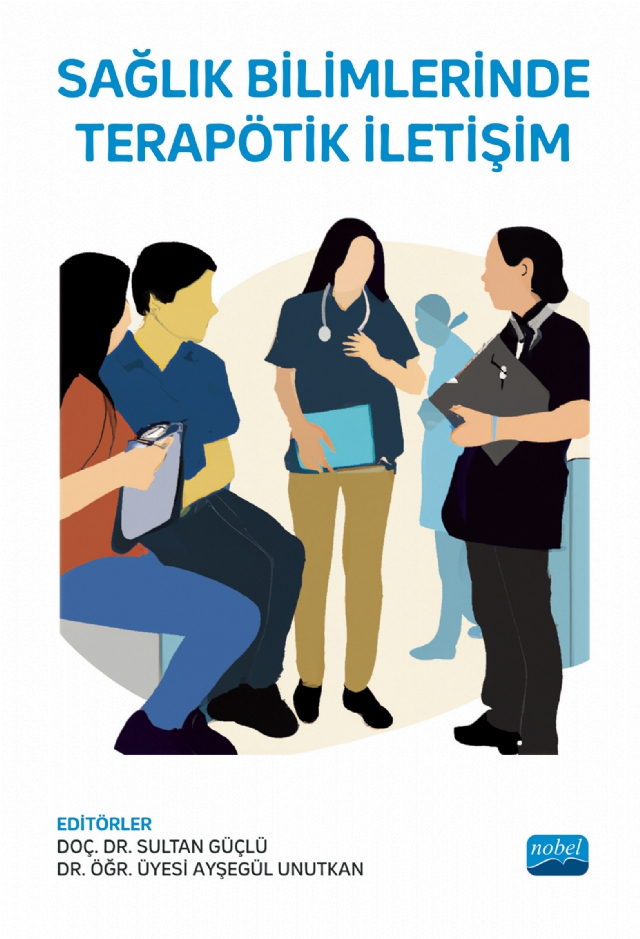Psychiatric Nursing \ 1-1

Introduction to Nursing is designed for nursing students. The book is an important resource that will help students prepare for professional nursing by shedding light on both the history of nursing and the present.
Starting from the historical development of nursing, the book is a guiding guide that covers many topics such as basic concepts in nursing, nursing philosophy, values and beliefs, contemporary roles of nursing, theories and models, nurses' duties, authorities, responsibilities, and evidence-based practices.
Starting from the historical development of nursing, the book is a guiding guide that covers many topics such as basic concepts in nursing, nursing philosophy, values and beliefs, contemporary roles of nursing, theories and models, nurses' duties, authorities, responsibilities, and evidence-based practices.

This book is a guide for professionals working in the mental health field. Each theory is comprehensively discussed in the book, which consists of sixteen chapters, including traditional and contemporary theories. These theories are Psychoanalytic Therapy, Adlerian Therapy, Attachment-Based Therapies, Individual-Centered Therapy, Cognitive Therapy, Rational-Emotional-Behavioral Therapy (ADBT), Gestalt Therapy, Transactional Analysis (TA), Structural Family Therapy, Bowen Family Therapy, Satir Transformational Systemic. Therapy is listed as Solution Focused Therapy, Narrative Therapy, Acceptance and Commitment Therapy (ACT), Feminist Therapy, and Expressive Art Therapy. In order to provide the reader with ease of reading, the topics in the book are handled step by step and presented from a broad perspective. Each chapter began with the theorist's life; It continued with the basic philosophy of the theory, its basic concepts, the aims of therapy, the principles of therapy, the role of the therapist and the client, the stages of therapy and therapy techniques. Immediately after the therapy techniques, case examples are given that both students studying in the field of mental health and field experts can benefit from. We hope that our book, which we hope you will read with pleasure, will contribute to the field...

In recent years, "complementary medicine practices" and studies in this field have been increasing rapidly in our country as in the world.
Our colleagues who provide services in the field of health and are responsible for care have very important responsibilities. Our colleagues are expected to use scientific evidence, follow up-to-date information, and convey the results of their work to care.
Our colleagues, who are aware of these responsibilities, carry out studies in many fields, especially in complementary medicine applications, in order to obtain new evidence and contribute to the development of databases of their professions.
However, the legal regulations on complementary medicine practices cause us to have difficulties in permitting the studies we will do in this field. We wanted to create this book in order to draw attention to the work of our colleagues on complementary medicine practices, whose place and importance in the field of health are well known, and to shed light on what they will do.
Hope it will be useful to your readers and the literature…
Our colleagues who provide services in the field of health and are responsible for care have very important responsibilities. Our colleagues are expected to use scientific evidence, follow up-to-date information, and convey the results of their work to care.
Our colleagues, who are aware of these responsibilities, carry out studies in many fields, especially in complementary medicine applications, in order to obtain new evidence and contribute to the development of databases of their professions.
However, the legal regulations on complementary medicine practices cause us to have difficulties in permitting the studies we will do in this field. We wanted to create this book in order to draw attention to the work of our colleagues on complementary medicine practices, whose place and importance in the field of health are well known, and to shed light on what they will do.
Hope it will be useful to your readers and the literature…

Communication is an indispensable part of life, which is at the heart of any human relationship. Every individual deserves to be treated with dignity and respect. Based on this fact, therapeutic communication is an effective and empathetic communication method, where personal space, privacy, confidentiality and trust are provided, information meets compassion, which can be used to increase the delivery/quality of health services and to increase patient/client satisfaction. Health professionals should know how to communicate with patients/clients and their relatives while evaluating patients/clients; It is very important for the individuals with whom they communicate to realize that they are also human beings with their own values and feelings. This book will be a guide for healthcare professionals and students, who are future healthcare professionals, to develop their therapeutic communication skills by approaching their patients/clients with a holistic perspective.